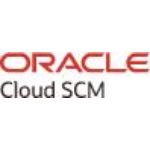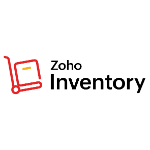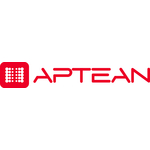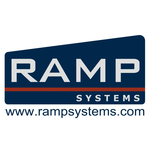TechnologyCounter provides genuine, unbiased real user reviews to help buyers make informed decisions. We may earn a referral fee when you purchase through our links, at no extra cost to you.
List of 15 Best Warehouse Management Software
Showing 1 - 15 of 131 productsOracle Fusion Cloud SCM is a solution for streamlining supply chain management. With its advanced technology and user-friendly interface, this innovative software is designed to optimize business operations and drive growth. Say goodbye to outdated p...Read Oracle Fusion Cloud SCM Reviews
Elevate your business and enhance your inventory control by utilizing Zoho Inventory. Zoho Inventory software allows you to efficiently manage orders from multiple sales channels, warehouses, packaging, and shipping. Keep a close eye on your inventor...Read Zoho Inventory Reviews
LOGIC ERP is a highly popular and widely recognized complete ERP software solution that caters to various industries such as Retail and POS, Warehouse Management, Marketplace, and eCommerce. It offers comprehensive business insights and built-in Bus...Read LOGIC ERP Reviews
Fieldproxy is a software designed to optimize and simplify field operations for businesses. With its user-friendly interface features, Fieldproxy revolutionizes the way businesses manage their field tasks, resulting in increased efficiency and produc...Read Fieldproxy Reviews
Wasp Inventory is a solution for efficient and organized inventory management. With its user-friendly interface features, Wasp Inventory streamlines the process of tracking and monitoring stock levels, saving time and reducing errors. Boost productiv...Read Wasp Inventory Reviews
BrightPearl is a software designed to simplify and streamline all your business operations. With its user-friendly interface features, BrightPearl ensures efficiency and organization for small and medium-sized enterprises. Say goodbye to manual tasks...Read BrightPearl Reviews
Aptean ERP is a and innovative business management software designed to streamline operations, increase efficiency, and support growth for businesses of all sizes. With a user-friendly interface and customizable features, Aptean ERP is the perfect so...Read Aptean ERP Reviews
Fishbowl Inventory is a top innovator in the inventory management industry. With a wide array of features and customizable options, Fishbowl helps businesses of all sizes streamline their inventory management processes. Say goodbye to time-consuming...Read Fishbowl Inventory Reviews
Unleashed is a software designed to revolutionize the way businesses operate. With its user-friendly interface and powerful features, Unleashed offers unparalleled efficiency and productivity for businesses of all sizes. Say goodbye to tedious tasks...Read Unleashed Reviews
Enterprise WMS is a warehouse management system designed to streamline operations and optimize inventory management. This user-friendly software caters to the unique needs of businesses, leading to enhanced productivity and overall growth. Take your...Read Enterprise WMS Reviews
Vin eRetail is a software designed to simplify and enhance your online sales process. With its intuitive interface and powerful features, Vin eRetail takes your e-commerce experience to new heights. Say goodbye to complex management and hello to effi...Read Vin eRetail Reviews
Infor WMS is a warehouse management solution designed to streamline operations and optimize supply chain management. From inventory control to order fulfillment, Infor WMS provides businesses with the tools they need to efficiently manage their wareh...Read Infor WMS Reviews
SkuVault Core is an innovative inventory management software designed to streamline and automate your warehouse operations. With its powerful features and user-friendly interface, SkuVault Core is the perfect solution for businesses of all sizes look...Read SkuVault Core Reviews
Cloud Hosted Warehouse and Logistics Management System. Focus WMS is the best Warehouse Management System software in Singapore. The Cloud-Based WMS Software is apt for any company with multiple warehouse processes...Read Focus WMS Reviews
EZOfficeInventory is a complete solution to efficiently manage your organizations assets. With its user-friendly interface and powerful features, EZOfficeInventory simplifies inventory tracking and streamlines asset management processes. Say goodbye...Read EZOfficeInventory Reviews
- What Is Warehouse Management Software?
- Top Reasons Why Businesses Need Warehouse Management Software?
- What Are the Top Key Features of Warehouse Management Software?
- What Are the Top Benefits of Warehouse Management Software?
- What Are the Steps to Choose the Right Warehouse Management Software?
- What Are the Types of Warehouse Management Software for Different Industries?
- What Are the Technology Trends for Best Warehouse Management Software?
- What Are the Deployment Options for Warehouse Management Software?
What Is Warehouse Management Software?
Warehouse Management Software (WMS) is a sort of software that assists businesses in better managing their warehouses. It makes it easier to keep track of stock levels, process orders and shipments faster, and even automate some of the tasks connected with running a warehouse.
WMS warehouse management system may help staff stay organized by keeping track of orders and shipments, as well as managing timetables and responsibilities. It can also make inventory tracking and accounting easier, as well as data access and updating quicker.
WMS software also allows for more control over the amount of space available in the warehouse and restricts the quantity of things in transit at any given time. WMS software can also be used to forecast future stock requirements and ensure that the warehouse always has enough inventory.
Finally, the WMS warehouse management system allows you to keep track of client orders and communicate order modifications and shipment statuses to customers more effectively.
Top Reasons Why Businesses Need Warehouse Management Software?
1. Warehouse management software allows for efficient inventory tracking and can significantly minimize the time spent on inventory management.
2. The WMS warehouse system aids in process accuracy by avoiding costly errors during storage, retrieval, and transportation.
3. The best WMS software enables firms to ensure that their inventory levels fulfill the needs of their consumers on time.
4. WMS warehouse management software aids in labor cost reduction by automating numerous manual operations.
5. Real-time inventory visibility is enabled via integration with other enterprise systems such as ERP or purchase order management systems.
6. WMS warehouse management system aids in the organization of shipping and receiving processes and makes it easier to plan for aging or slow-moving stock.
7. Improved warehouse organization results in shorter lead times for picking and packing activities.
8. The best WMS systems allow organizations to better manage their customer service levels.
9. WMS warehouse system enables determining costing per activity or job easier.
10. The best WMS software automates a variety of processes, including inventory counting, labeling, order routing, putaway, and transportation notification.
11. Automates documents to ensure compliance with applicable rules and quality standards.
12. Develops effective and space-saving distribution hubs by making greater use of existing inventory.
13. Improved stock movement and stocking levee control
14 Using cutting-edge digital technologies to capture critical performance metrics.
15. Reduce the costs of warranty fulfillment, returns, and recalls.
What Are the Top Key Features of Warehouse Management Software?
The key features of WMS warehouse management oftware include:
1. Automated Inventory Management: Warehouses can utilize automated inventory management to manage stock levels, order replenishment, and track shipments from inventory sources.
2. Order Management: The warehouse management tool enables effective order administration, such as order fulfillment, tracking, and customer service.
3. Product Routing: This capability helps warehouses to efficiently direct the flow of commodities from point to point.
4. Real-Time Status Tracking: This functionality of cloud-based warehouse management system offers warehouse managers the capability to oversee inventory levels and other operational activities using any web-enabled device.
5. Barcode Scanning: The utilization of barcode scanning technology in warehouse management tool enables warehouses to efficiently and precisely scan things throughout the stages of receiving and inventory management.
6. Labor and Task Management: This functionality of top WMS systems enables warehouses to enhance the efficiency of human resource management and offers managers within the warehouse improved visibility.
7. Reporting and Analytics: The WMS warehouse system offers comprehensive analytics capabilities that allow warehouses to assess productivity levels and various performance parameters.
8. Supply Chain Integration: This functionality of the best WMS software enables warehouses to establish integration with additional stakeholders in the supply chain in order to enhance the efficiency of order fulfillment and shipment procedures.
What Are the Top Benefits of Warehouse Management Software?
1. Increased Productivity: The implementation of WMS warehouse management software enhances overall efficiency through the optimization and automation of various warehouse operations, including but not limited to order picking, inventory management, and shipping and receiving.
2. Improved Accuracy: Warehouse management tool plays a crucial role in enhancing precision in the monitoring of inventory levels, order fulfillment, and shipping processes.
3. Improved Visibility: The WMS warehouse management system facilitates access to information regarding the current stock levels, warehouse placements, and client orders, hence enabling enhanced efficiency in order processing and customer satisfaction.
4. Reduced Costs: The implementation of WMS warehouse system has been found to effectively mitigate expenses through the automation of various operational procedures and the enhancement of overall efficiency. The best WMS software has the potential to decrease labor expenses, mitigate inventory carrying expenses, and enhance customer satisfaction.
5. Enhanced Tracking: The utilization of the best warehouse management system facilitates the acquisition of comprehensive insights pertaining to the actual quantities of inventory, the specific locations within the warehouse, and the status of customer orders. This, in turn, enables the precise and up-to-date monitoring of the movement of things into and out of the warehouse.
6. Improved Space Utilisation: The inventory tracking system facilitates improved space utilization, reduction of clutter, and augmentation of storage capacity.
7. Increased Level of Security: The utilization of WMS warehouse management software enables the continuous monitoring and documentation of the movement of goods within the warehouse, resulting in enhanced security measures and a diminished likelihood of theft or misplacement.
8. Improved Customer Service: The implementation of precise order tracking systems enhances customer service, hence fostering customer loyalty.
9. Automated Reporting: The utilization of warehouse management software facilitates the retrieval of automated reports, which in turn allows for the monitoring of warehouse performance. This capability empowers decision-makers to make informed choices based on data analysis.
10. Improved Risk Management: The WMS warehouse system facilitates risk reduction by enhancing the level of transparency in warehouse operations, thereby mitigating the potential for expensive errors.
What Are the Steps to Choose the Right Warehouse Management Software?
1. Identify your business needs: Prior to choosing a warehouse management tool, it is imperative to initially ascertain the existing and prospective requirements of your firm in order to ascertain the program's capability to fulfill them. The analysis should encompass various elements, including the dimensions of the warehouse, the quantity of stock-keeping units (SKUs) that necessitate management, the nature of the shipped goods, the assortment of products held, and the desired level of automation.
2. Evaluate Technology Capabilities: The examination of the top WMS systems technological capabilities encompasses various aspects, including its ability to be deployed on cloud platforms, its capacity for integration with other cloud-based warehouse management system, its potential for scalability, its compatibility with different environments, and the availability of reporting and analytics tools. For instance, it is advisable to verify the compatibility of the software with the existing Enterprise Resource Planning (ERP) and other interconnected systems.
3. Consider scalability & flexibility: The WMS warehouse management software should possess the capability to expand and adapt in accordance with the evolving requirements of the organization. It is essential to thoroughly evaluate the output reporting capabilities, functionality, scalability, customisation, and the supported number of users.
4. Analyze functionality, features and usability: This analysis examines the various functionalities and features provided by the WMS warehouse management system, encompassing inventory management, picking and loading procedures, order fulfillment, shipment tracking, and warehouse analytics. Ensure that the WMS warehouse system is designed to be user-friendly and simple, featuring a straightforward and easily navigable interface.
5. Examine the cost: Assess the best WMS systems, encompassing expenses such as initial purchase, recurring subscription fees, charges for installation and implementation, as well as ongoing support and maintenance costs. Ensure that the pricing aligns with your financial constraints.
6. Follow best practices: When choosing the best warehouse management system, it is advisable to adhere to important best practices. These practices include commencing with a small-scale implementation, seeking client references, running a demonstration or pilot project, and gaining the support and agreement of key stakeholders.
7. Read reviews: Thoroughly examine evaluations provided by both users and specialists who have utilized the product. If feasible, conduct software testing or review user testimonials from existing customers.
8. Ensure Support: It is imperative to ensure that the warehouse management software is equipped with adequate support mechanisms to facilitate the smooth transition and familiarization of both the business and its personnel with the newly implemented software.
9. Check in with the vendor: It is advisable to engage in communication with the best WMS systems seller in order to seek clarification and address any inquiries pertaining to the product.
What Are the Types of Warehouse Management Software for Different Industries?
Warehouse management software (WMS) offers a range of functionalities designed exclusively for firms operating in the warehouse and logistics industries. These functionalities include inventory and storage management, traceability, data processing, and other relevant functions. The availability of different types of best warehouse management systems varies depending on the industry.
For instance, Warehouse Management Systems (WMS) intended for application in the manufacturing and automotive sectors frequently incorporate traceability systems as an integral feature to facilitate the monitoring and documentation of components and goods.
The potential characteristics encompass the ability to personalize notifications for instances where inventory levels are depleting, the capability to track serial numbers, and the provision of up-to-date information on the warehouse layout to facilitate the management of incoming materials and product deliveries.
Within the retail and e-commerce sectors, there exists a notable emphasis on several aspects such as order management, inventory optimization, storage control, and order fulfillment. In this particular context, the best Warehouse Management System may encompass functionalities such as dynamic picking optimization, automatic scheduling optimization, and seamless connectivity with vendor or shipping partners.
In the context of third-party logistics (3PL) environments, warehouse management systems (WMS) commonly place emphasis on the effective management of cross-docking activities, the integration of shipping solutions, and the optimal usage of freight capacity.
Warehouse management systems (WMS) utilized in this particular business may incorporate functionalities such as real-time tracking of shipments and the inclusion of proof of delivery capabilities. Within the food and beverage sectors, the Warehouse Management System is specifically tailored to accommodate the distinctive requirements of this business.
Within this particular business, it is imperative for the best Warehouse Management Systems to encompass various essential functionalities. These functionalities include but are not limited to temperature monitoring and control, batch or lot tracking, formula management, and hazardous certification.
In the context of the pharmaceuticals and life sciences industries, the primary emphasis of top WMS systems lies in ensuring adherence to regulatory requirements, facilitating the secure storage and transportation of medications and narcotics, and implementing rigorous monitoring of lot and expiration dates.
In conclusion, the selection of the best WMS systems may vary between industries, as companies opt for different models that align more well with their specific requirements.
What Are the Technology Trends for Best Warehouse Management Software?
Current warehouse management software commonly integrates artificial intelligence (AI) and machine learning (ML) algorithms to facilitate operational efficiency and enhance logistics management for businesses.
Automated inventory tracking and management systems offer improved data accessibility, real-time inventory tracking, integrated supply chain solutions, and expanded internal and external communication capabilities. Artificial intelligence (AI) and machine learning (ML) have the potential to mitigate human error, enhance customer service, and create valuable insights.
Furthermore, the utilization of cloud-based warehouse management software, coupled with cloud analytics, enables enterprises to expand their analytical capacities to distant warehouse settings.
The utilization of Robotic Process Automation (RPA) is experiencing a surge in popularity as a means of automating various processes related to warehouse management. Robotic Process Automation (RPA) has the potential to empower users by automating labor-intensive procedures, hence optimizing resource allocation and removing monotonous activities like data entry and data extraction.
In recent times, the advent of blockchain-based WMS warehouse system has provided organizations with the opportunity to enhance the precision, security, and transparency inside their warehousing operations.
What Are the Deployment Options for Warehouse Management Software?
The available deployment choices for top WMS systems are contingent upon the specific demands and requirements of the customers.
Typically, these options encompass on-premise, cloud-based, or a combination of both.
The on-premise model entails the installation and management of software within the organization's physical premises, adhering to a conventional manner. The benefits of this strategy encompass the capacity to exercise comprehensive control and ensure precision over internal data, the absence of reliance on an internet connection, and the convenience of effortless scalability.
Cloud-based warehouse management system deployment has gained significant popularity as a viable solution for software storage and management, wherein a third-party supplier assumes responsibility for these tasks. The benefits associated with this technique encompass financial savings, efficient upgrade administration, and prompt software accessibility.
The hybrid option integrates both on-premise and cloud-based technologies, offering a balanced solution that incorporates the benefits of both approaches. The hybrid method has several advantages, such as enhanced flexibility in terms of the best WMS systems accessibility across various locations and platforms.
Additionally, it provides scalability and cost-effective alternatives, further contributing to its appeal.















